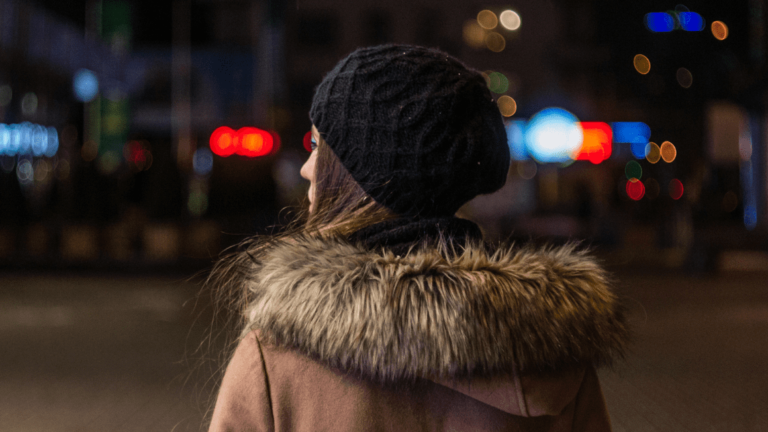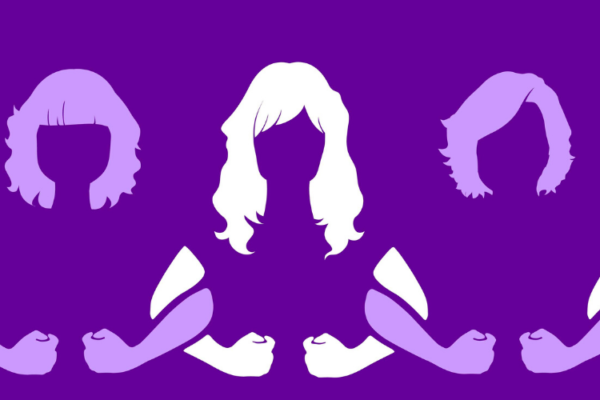In the UK, it seems as though feeling safe on the streets has always been a concern, especially for women.
A YouGov survey for The Independent found that almost two-thirds of women now feel in danger when walking home alone at night.
This heightened reality of danger towards women includes sex workers, with recent reports by charities and organisations highlighting the increase of violence towards sex workers during the lockdown.
If you worry about your personal safety at night, these tips can help you feel safer while out on the streets.
Tell someone where you’re going
Whether it’s in the early afternoon or evening, you should always tell a friend or family member where you are going when meeting a client.
This is particularly important for night-time bookings, as there is generally a higher risk of being a victim of crime.
However, although people typically feel safer during the day, as the streets tend to be brighter and busier, it’s important to remember that incidents can happen during the day too.
You should always let someone know where you will be, no matter what time it is.
Avoid walking in isolated areas
If you’re walking home after a booking, stay away from isolated areas at night.
These areas include dark small streets and alleyways, woods, canals, parks, areas surrounded by thick vegetation, and places with few or no people in sight.
You’re more likely to become a victim of crime in isolated or unsafe areas at night, as criminals are often out under the guise of darkness.
If you do come into contact with danger, it is also less likely that someone will hear your cry for help.

Stay in well-lit areas
If you’re going home after a night out, always stay in well-lit areas with CCTV, such as streets occupied with shops, houses and lots of street lights.
People are less likely to commit a crime in places where there’s sufficient lighting, security cameras and people around to witness their behaviour.
If you’re driving, don’t get complacent – make sure you park in a well-lit area too and visualize what the area will look like in the dark when you return.
Think, will this location be isolated at night? Will I be able to see properly? This is an important safety tip for walking to your car at night.

Carry a small flashlight
Always keep a mini flashlight on your keychain so it’s always with you wherever you go.
You just don’t know when you’ll need it to provide extra light in dark areas.
If you have a built-in torch on your phone, try to avoid using this, as this could put you at risk of robbery or being attacked for your possessions.
Don’t take any shortcuts
One of the most important night safety tips is to never risk your safety by taking shortcuts – especially those that are dark and isolated, as mentioned previously.
Even if your journey takes you longer or you’re running late to meet a client, having patience or notifying your client about the situation is likely to keep you safe.

Plan your route ahead of time
Going to meet a client in an unfamiliar area?
Make sure you plan your route in advance.
Not only will it prevent you from getting lost, but you’ll be able to walk with confidence, which can help deter attackers.
Studies have shown that a confident strut gives attackers the impression that you’ll be a challenging target.
So, avoid looking nervous or intimidated, such as walking really fast or looking around frequently.
Drink in moderation
If you’re at a bar or you want to drink during bookings, make sure you know your limit.
For your safety, you need to be as alert as possible, so you should avoid drinking at all costs.
If you do, try to stick to one drink and don’t continue to drink just because you feel “okay”, as the effects of alcohol can catch up with you later. Make sure you’re also drinking lots of water to stay hydrated.
Never leave your drink unattended to avoid being spiked, and if a client offers to pour you a drink, make sure it’s from an unopened bottle and you can see what they’re doing.

Don’t listen to music or make social calls
You need to be completely focused when you’re out and about at night, especially as it’s harder to see.
Listening to music or having a casual conversation with a friend can divert your attention and distract you from being vigilant.
Your surroundings need your undivided attention and you need to be able to hear what’s going on around you to stay safe.
Carry a non-violent deterrent
Make room in your bag for a non-violent deterrent such as a whistle.
The loud sound of a whistle can put attackers off while alerting others to your dangerous plight so they can help.
Use a valid taxi service
If you’re using a taxi, make sure you check that they’re licensed before getting into the vehicle and ask for the driver to show their badge. If they do not have one, do not get in.
You should also confirm with them the name of the person they are picking up and where they are going to check that you’re getting in the right taxi.
Take a picture or record the number plate and send it to someone you trust while letting them know the name of the driver, where you’re heading, and the model of the vehicle. You should also share your location with them.

Wear appropriate footwear
If you’re planning on wearing heels, bringing some comfortable shoes with you, such as flats or trainers, is important for women’s safety at night.
Swap your footwear when you’re on your way home, as this will allow you to make a quicker getaway should you feel unsafe.
Be picky about what you wear too, as garments with hoods or long collars can restrict part of your vision, especially when it’s dark.
Keep your hands free
When travelling at night, keep your hands free.
Wear a coat with pockets or a crossbody bag or backpack, so you can react quickly if you feel like you’re in danger or notice someone following you.
Having too many things in your hand can prevent you from reacting quickly.
If anything, keep one hand on your phone to call for help or use a safety or personal security app (more information below) should things go wrong.
Take action if you’re being followed
If you feel you’re being followed, you should use a safety app or call for help. You should not go home either.
If there’s one in sight, you should divert to a place of business, such as a coffee shop, restaurant or petrol station and go inside.
An attacker is far less likely to approach you inside a place of business, where there are cameras and witnesses.
You can ask an employee to help you or use this opportunity to call the police or a friend or cab and stay inside until they arrive.

Download a personal security app
There are plenty of personal safety apps out there, such as bSafe, Walksafe, One Scream and Life360, that you can download to enhance your safety.
Make sure you turn them on before setting off alone, even when you’re with clients you’re meeting for the first time.
Some of these apps can track your location and send alerts to pre-set contacts to warn them that you may be in danger.
Trust your instincts
If something seems suspicious to you, it probably is. Never ignore your gut instincts and act accordingly. It’s always better to be safe than sorry.
Read more information on sex worker safety.





